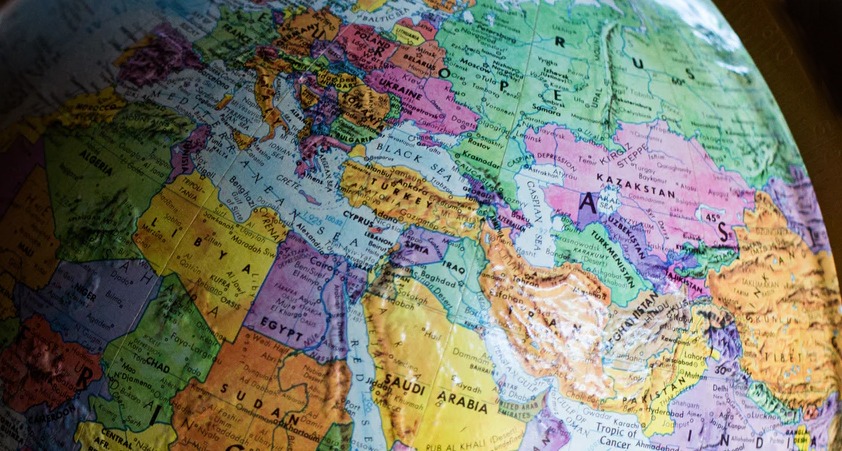We want to know what’s happening around us and why. What we can’t see for ourselves, we like to be told: Online, in the newspaper, on the radio and on television. It’s a long way from the actual event to the news report. Every day, journalists receive countless stories, reports from correspondents and press releases from parties, associations and companies. The majority of the information, however, is provided by a dense network of global news agencies. They collect, select and sell information to the media. But what is the meaning of news agencies?
The path from the event to the report – explained.
News agencies as gatekeeper
News agencies provide newspapers, magazines, radios and other media with information in the form of pre-written reports on current topics. They provide current and fast reports on events. As so-called gatekeepers, they also decide which of the many incoming news items they edit and forward and which not. Wolfgang Vyslozil, former managing director of the largest Austrian news agency, sums it up in a nutshell:
“News agencies are key institutions with substantial importance for every media system. They are the invisible nerve centre that connects all parts of this system.”
Who owns the news agencies?
News agencies can be organized in different ways. There are governmental, private and public agencies. Mostly they are connected by cooperations and sharing contracts. Among the approximately 140 news agencies worldwide, only 20 are free of governmental influence. Agencies like the Austrian APA, the German DPA or the French AFP, are cooperatives and belong to the country’s media. But it is not always like that: The British agency Thomson-Reuters, for example, is now 55 percent owned by the Canadian Thomson family. The AFP is a special case: Its biggest client is the French ministries. They generate 40% of the agency’s sales.
What about international news?
Which news from other countries make their way into our newspapers, radios and TV as actual stories depends on several factors. First of all, of course, you can do the research yourself. News agencies and newspapers can employ correspondents in different countries to report on what is happening there. The only problem: many media do not even have their own foreign correspondents and have no other option than to rely on large, global agencies for international news. While these agencies usually have several thousand employees, most newspapers have only a few correspondents.
Western agencies dominate the market
It is a long way from the incident to its announcement in the newspaper, and yet it all proceeds very quickly. What’s happening in the world right now is in the newspaper just a few hours later or flickers across the TV screen a few minutes later. In reality, however, most of the international news in the Western world comes from three major global news agencies: the American Associated Press (AP), Thomson-Reuters from New York/Toronto and Agence France-Presse (AFP) from Paris. The most important news agency for the financial world is also based in New York: Bloomberg. It’s owner is the billionaire and former mayor of the city, Michael Bloomberg. These western agencies are market leaders.
The Chinese state news agency Xinhua, the Russian Rossija Sewodnja and the Qatar-based Al Jazeera differ from their offerings, but they only play a minor role in the market. The Russian news agency TASS is also one of the largest news agencies in the world. TASS is a state enterprise, it’s owner is the Russian government.
Cooperations, Correspondence and Copy-Paste
For smaller, national agencies it is not possible such to build up a worldwide network of correspondents. That is why there are cooperations with other small and global agencies in order to gain access to international news and keep their national media informed about world events. In fact in many cases collaboration goes much further than just cooperation. For example the dpa has an exclusive contract with the AP. So most of the times their international coverage is just a translation of the AP-news published in the United States.
 Global News are dominated by a few agencies located in NATO-States. Artwork: Scoop/Felix Hagmaier
Global News are dominated by a few agencies located in NATO-States. Artwork: Scoop/Felix Hagmaier
NATO countries, NATO news?
This dependence on global agencies also has side effects. International reporting is characterized by a certain similarity due to the practice of copying. The big news agencies are all located in the Western world, are closely connected and thus hold a monopoly position. From Washington over Paris to Berlin, wordings are adopted. This means that international events are reported more or less the same way all over the world.
To put it from the agency’s point of view: anyone reporting on Bloomberg, for example, about protests against the owner of the news agency, is probably very cautious. A similar effect takes place in case of military or economic conflicts involving western interests. That inevitably results in a slight geopolitical bias. When in doubt, news agencies from NATO countries, for example, have the opportunity to influence news in their favour.
How do you recognize agency reports?
You can identify Agency messages by a small abbreviation like AFP, usually at the end of an article. Photos and videos are also identified in this way. Sometimes the name or the abbreviation of those who have edited the agency report can be found, too. Nevertheless, there are many media that do not indicate their sources. On radio and television for example, but also in the press. Free and tabloid newspapers in particular often deal with agency material in a non-transparent way. As a reader, you often do not know which articles originate from your own editorial work and which are partially or completely taken from agencies.
Small abbreviation, great responsibility
The major news agencies thus channel news streams across the globe, some have been doing this for over 170 years. They are the first global media companies in the world and have become the driving force behind globalization. Despite their immense importance for the daily information of the world, however, they disappear in our daily lives behind their abbreviations on the sidelines of press and radio reporting. We should not underestimate their influence, as the historian Volker Barth points out:
“News agencies structure the perception of the world and determine how people experience the environment. News agencies select, classify and edit information and thus decide which local event receives global attention or becomes a global event.”
